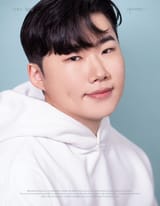Michael Sandel's Warning: Is Korean Society Heading Toward Collapse? 'AI Era, Low Birth Rate, and Education Fever'

During the long holiday, SamPro TV featured some fascinating content.
Professor Michael Sandel from Harvard University, famous for "Justice: What's the Right Thing to Do?", issued a strong warning about Korean society. He stated that deepening inequality and meritocracy are threatening democracy, which could lead to societal collapse. In what context did he make such statements? Let's examine the crisis in Korean society through his interview on SamPro TV.
Summary
- Deepening Inequality: Korea has the second-fastest growing income inequality among OECD countries, with the top 1% holding 11.7% of total income.
- The Tragedy of Educational Competition: About 40% of middle and high school students experience extreme academic stress, and Korea has the second-highest youth suicide rate in the OECD.
- The Trap of Meritocracy: Class conflicts symbolized by 'golden spoon' and 'dirt spoon' weaken social solidarity.
- The AI Threat: Up to 4 million jobs could potentially be replaced by AI over the next 20 years.
- Political Powerlessness: While young generation voter turnout reaches 70%, political disillusionment remains high.
Inequality: The Poison Eating Away at Democracy
Professor Sandel warns that inequality is not merely an income gap but a moral crisis shaking the roots of democracy. In Korean society, the lives of the wealthy and ordinary citizens are becoming extremely divided, causing spaces for inter-class encounters to disappear. This weakens community consciousness and makes citizens lose their sense of responsibility to solve problems together.
As of 2021, Korea's top 1% holds 11.7% of total income, a 3.3 percentage point increase since 2007, representing the second-largest increase among 30 OECD countries. This shows that Korea's inequality is regressing to colonial-era levels after the "Miracle on the Han River."

Source: WID
Education Fever: From Dream to Nightmare
Korea's education fever is among the world's highest, but Professor Sandel criticizes it as "poison that distorts the essence of education."
- Exams like the Suneung have "become mere gateways to employment and class advancement"
- The exploration of new knowledge and civic consciousness cultivation - education's true values - are being lost.
About 40% of middle and high school students experience extreme academic stress, leading to the second-highest youth suicide rate among OECD countries.
Sandel argues that "fierce competition is destroying young people's mental health" and insists that education should be a space for exploring life's meaning, not simply a 'ladder to success.'

Source: Statista
Meritocracy: The False Promise of Fairness
While meritocracy promises fairness, Sandel criticizes it as "a system that breeds winner's arrogance and loser's humiliation." Korean society's terms 'golden spoon' and 'dirt spoon' reveal the fiction of meritocracy. Success results not only from individual effort but also from luck and social support, yet meritocracy that ignores this fuels class conflict.
Sandel emphasizes that successful people should have the humility to think "I could have been in their position," viewing this as the first step toward restoring social solidarity.
AI: Threatening Jobs and Dignity
The AI revolution could further deepen inequality. Sandel argues that AI should be used as a tool to enhance worker productivity rather than replace jobs. However, according to Bank of Korea research, up to 4 million jobs could be replaced by AI over the next 20 years, with high-income, highly educated professions likely to face greater impact.
Sandel urges that "work is not merely a means of livelihood but a source of social dignity," calling for discussions about the common good to ensure AI doesn't undermine human value.

Source: Bloomberg
Moral Crisis: Unrespected Labor
Sandel points out that inequality is not just about income but social recognition. He quotes Martin Luther King Jr., emphasizing that "a janitor is as essential to society as a doctor." However, Korean society undervalues essential workers like delivery drivers and sanitation workers, deepening the moral crisis.
Social media exacerbates this problem. Sandel criticizes how SNS platforms fuel polarization by attracting attention through anger and shocking content, arguing for the restoration of listening and empathy virtues.
Young Generation: Between Hope and Despair
In the 2022 presidential election, voter turnout among 19-29 year-olds was about 70%, but many young people feel powerless due to disappointment with political establishments. Sandel sees hope in their desire for ethical and rational discourse. He urges them to "not give up on politics and democracy," believing the young generation can improve the quality of public discourse.

Source: Statista
Conclusion: What Kind of Society Do We Want?
Sandel's interview reminds us that Korea's inequality, meritocracy, AI, and political powerlessness are not simple problems but crises threatening our community's future.
In summary, he emphasizes that only a society armed with humility, solidarity, and civic responsibility can overcome this crisis.
What kind of society do you dream of?
Reflection Questions
- How can we balance meritocracy with social solidarity?
- What role should education play beyond economic advancement?
- How can we ensure AI serves human dignity rather than replacing it?
- What steps can young people take to revitalize democratic discourse?
Professor Sandel's warning serves as both a wake-up call and a roadmap for Korean society's future. The choice of what kind of society we build lies in our hands.


![[STA] Synchronous Clocks vs. Asynchronous Clocks](https://images.unsplash.com/photo-1533749047139-189de3cf06d3?crop=entropy&cs=tinysrgb&fit=max&fm=jpg&ixid=M3wxMTc3M3wwfDF8c2VhcmNofDF8fGNsb2NrfGVufDB8fHx8MTc1NTQzMzg1OHww&ixlib=rb-4.1.0&q=80&w=600)

